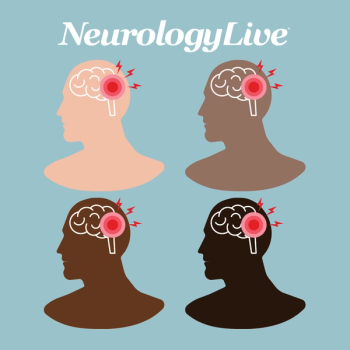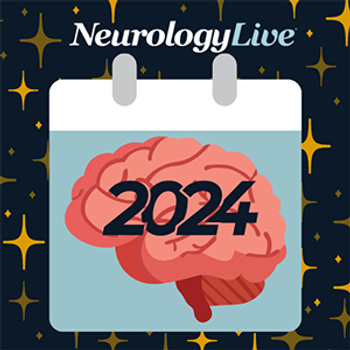
A recent study presented at MDA 2024 suggests that preoperative use of disease-modifying agents for patients with spinal muscular atrophy leads to less severe postoperative complications following scoliosis surgery.

Isabella Ciccone, Content Associate, NeurologyLive®, has been with the team since September 2022. Follow her on X @iciccone7 or email her at [email protected]

A recent study presented at MDA 2024 suggests that preoperative use of disease-modifying agents for patients with spinal muscular atrophy leads to less severe postoperative complications following scoliosis surgery.

In a recent phase 2 trial analysis of viltolarsen presented at MDA 2024, findings showed improvement in forced vital capacity compared with standard care in patients with Duchenne muscular dystrophy.

A new meta analysis of 3 studies presented at MDA 2024 revealed that ataluren significantly slowed the decline in muscle function for patients with nonsense mutation Duchenne muscular dystrophy.

A recent post hoc analysis of the phase 3 EPIDYS trial presented at MDA 2024 revealed significant positive outcomes with givinostat, a histone deacetylase inhibitor, among patients with Duchenne muscular dystrophy.

A new analysis of phase 3 MOVE-FA trial presented at MDA 2024 revealed promising outcomes for vatiquinone, an oral 15-lipoxygenase inhibitor, in patients with Friedreich ataxia.

Catch up on any of the neurology news headlines you may have missed over the course of March 2024, compiled all into one place by the NeurologyLive® team.

A recent study presented at the 2024 ACTRIMS Forum suggests that increased aerobic glycolysis in normal appearing white matter may be an early feature of multiple sclerosis.

New data from the TRAP-MS trial showed clemastine fumarate's association with increased disability accumulation in cases of non-lesional multiple sclerosis.

A recent study presented the 2024 ACTRIMS Forum showed that a subset of CD8+ T cells preferentially expanded in the cerebrospinal fluid of patients with multiple sclerosis.

A recent study presented at the 2024 ACTRIMS Forum revealed the association between paramagnetic rim lesions and subsequent cognitive decline in patients with multiple sclerosis.

New findings from a study presented at the 2024 ACTRIMS Forum revealed an increase in epigenetic age acceleration among a subgroup of patients with multiple sclerosis.

A new study showed that NLRX1, a mitochondrial innate immune sensor, may serve as a promising therapeutic target to prevent inflammatory neurodegeneration in multiple sclerosis.

A recent study presented at 2024 ACTRIMS Forum showed that body mass index may influence disease progression in patients with multiple sclerosis.

Long-term data from the phase 3 DAYBREAK trial affirmed sustained efficacy of ozanimod for relapsing forms of multiple sclerosis, with a high amount of patients who were relapse-free at 6 years.

Experts in stroke care expressed a need for significant increases in awareness of stroke risk factors and symptoms in patient communities that experience racial disparities.

As part of our monthly clinician spotlight, NeurologyLive® highlighted sleep medicine and epilepsy expert Nancy Foldvary-Schaefer, DO, MS, director of the Sleep Disorders Center and staff in the Epilepsy Center at Cleveland Clinic.

The director of Dysautonomia Clinic talked about the often overlooked triad of dysautonomia, hypermobility spectrum disorder, and mast cell activation syndrome in the field of headache medicine.

A recent study showed that the 2021 European guidelines for chronic inflammatory demyelinating polyradiculoneuropathy provided a clearer definition of variants for the disease.

In a recent study, a new blood test displayed remarkable accuracy in detecting Alzheimer disease pathology, showing its potential as an essential screening tool.

PepGen has begun its phase 2 CONNECT1-EDO51 trial, dosing the first patient with PGN-EDO51, an agent for Duchenne muscular dystrophy amendable to an exon 51 skipping.

A recent phase 3 trial demonstrated that N-acetyl-l-leucine significantly improved symptoms in patients with Niemann-Pick disease type C, showing promise as a potential treatment.

A recent observational study detected anti-DLAT antibodies in the serum of patients with chronic inflammatory demyelinating polyneuropathy with a sensory-dominant phenotype.

George Tofaris, MBBChir, PhD, FRCP, professor of neurology and translational neuroscience at University of Oxford, talked about a recent study assessing α-synuclein in neuronally derived serum-extracellular vesicles identified patients at risk of Parkinson disease.

A recent review of studies indicated that intravenous immunoglobulin could be as effective as other treatments in improving disability for patients with chronic inflammatory demyelinating polyradiculoneuropathy.

A recent study revealed that elevated L1CAM-positive extracellular vesicle α-synuclein levels in the blood could indicate an increased risk of developing Parkinson disease and related dementia.

A recent study highlighted the potential of susceptibility-weighted image features as imaging biomarkers to differentiate patients with multiple sclerosis from those with neuromyelitis optica spectrum disorder.

The FDA has accepted Sarepta Therapeutics' efficacy supplement for gene therapy SRP-9001, granting it a priority review for the treatment of Duchenne muscular dystrophy, with a decision expected by June 21, 2024.

Experts from different subspecialties in neurology shared their clinical perspectives for patients on promising therapeutics and expansion of care interventions for 2024.

A recent analysis estimated the prevalence of subjective cognitive complaints experienced by patients with Parkinson disease, suggesting these may be predictive of cognitive decline.

Cynthia Tsai, MD, PhD, assistant professor of neurology at National Taiwan University College of Medicine, shared her clinical viewpoint on findings from a study presented at ISC 2024 using amyloid PET scans to differentiate between CAA and AD.